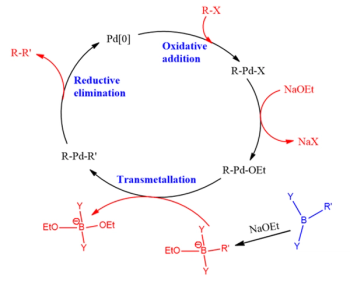
LCGC Announces the 2016 Winners of the Lifetime Achievement and Emerging Leader in Chromatography Awards
LCGC, the leading resource for separation scientists, is proud to announce that Milton L. Lee and Debby Mangelings are the winners of the ninth annual LCGC Lifetime Achievement and Emerging Leader in Chromatography Awards, respectively. Lee and Mangelings will be honored in a symposium as part of the technical program at the Pittcon 2016 conference in Atlanta, Georgia, on Monday, March 6, 2016.
The Lifetime Achievement Award
The Lifetime Achievement in Chromatography Award honors a seasoned professional for a lifetime of contributions to the advancement of chromatographic techniques and applications.
Lee, the 2016 winner, is best known for his achievements in capillary chromatography and electrophoresis, his activities in scientific instrument companies, and his tenure as a chemistry professor for more than 35 years at Brigham Young University (BYU), where he has held the position of H. Tracy Hall Professor of Chemistry from 1985 to the present. Lee received a B.A. in Chemistry from the University of Utah in 1971, and a PhD in Analytical Chemistry from Indiana University in 1975. He went to BYU after conducting postdoctoral research at Massachusetts Institute of Technology (1975–1976). He is the author of more than 540 journal publications.
Lee's research group at BYU currently focuses on capillary and micro- and nanofluidic separations, monolithic column technology for capillary liquid chromatography, and instrumentation for field sampling and hand-portable gas chromatography–mass spectrometry (GC–MS). Lee has commercialized instrumentation for capillary supercritical fluid chromatography (SFC), atmospheric pressure ionization time-of-flight MS, and GC–toroidal ion trap MS. The holder of 20 patents, Lee has founded three analytical instrument companies. Professor Lee's work stands out for its broad range across both academic as well as application areas, including environmental, biomedical, and chemical–biological warfare analysis. He has been responsible for the development of a number of novel porous polymer monolithic stationary phases and sol-gel bonded silica particles that have found broad application.
Lee also has served numerous academic societies and journals, as well as the scientific organizing committees of the International Symposia on Capillary Chromatography, the International Symposia on Microcolumn Separations, the International Symposia on Supercritical Fluid Chromatography, and the International Symposia on Capillary Chromatography and Electrophoresis.
Lee is the recipient of numerous awards, distinctions, and medals, including the M.S. Tswett Chromatography Medal (1984), the Keene P. Dimick Chromatography Award (1988), the ACS Award in Chromatography (1988), the Russian Tswett Chromatography Medal (1992), an R&D 100 Award in 1993 and again in 2008, the Martin Gold Medal (1996), the COLACRO Medal (1998), the M.J.E. Golay Award (1998), the ACS Award in Chemical Instrumentation (1998), an honorary Ph.D. from Uppsala University (1998), the Dal Nogare Award (1999), the Eastern Analytical Symposium Award for Achievements in Separation Science (1999), the CASSS Award for Distinguished Contributions to Separation Science (2005), the Pittsburgh Analytical Chemistry Award (2008), the Eastern Analytical Symposium Award (2008), and the ACS Award in Separations Science & Technology (2012).
The Emerging Leader Award
The Emerging Leader in Chromatography Award recognizes the achievements and aspirations of a talented young separation scientist who has made strides early in his or her career toward the advancement of chromatographic techniques and applications.
Debby Mangelings, the 2016 winner, is an associate professor in the Department of Analytical Chemistry and Pharmaceutical Technology at the Vrije Universiteit Brussel, in Brussels, Belgium.
Mangelings’s work has focused primarily on chiral separations. She has focused on the definition and updating of chiral separation strategies for various modes of high performance liquid chromatography (HPLC)-including normal-phase, reversed-phase, and polar organic solvent chromatography-as well as for capillary electrophoresis and capillary electrochromatography (CEC). She has more recently developed SFC methods for chiral analyses and non-chiral analysis for drug impurity profiling. The synthesis of in-capillary stationary phases, such as monoliths for both chiral and achiral separations in CEC, is another one of her interests.
More recently, Mangelings has become involved in the chemometric data analysis of chiral separation data to study systems with similar or dissimilar enantioselectivity. In CEC, she is working on the evaluation of new stationary phases, such as those with smaller particle diameters or with core–shell particles. Finally, she recently was involved in the successful chiral separation of uncommon compounds as the boron cluster species.
Her publication record includes 8 book chapters and 64 manuscripts in peer-reviewed journals, and she has given 45 oral and 71 poster presentations at national and international congresses and symposia. Since 2012 she has been a member of the editorial board of Chromatographia and Acta Chromatographica.
In 2004 at HPCE 2004 (Salzburg, Austria) she received the Applied Physical Chemistry Award of the Istvan Halasz Foundation for outstanding achievements in the field of chromatography, and in 2007 she was the Laureate of the National Prize of the Belgian Society of Pharmaceutical Sciences.
Newsletter
Join the global community of analytical scientists who trust LCGC for insights on the latest techniques, trends, and expert solutions in chromatography.




